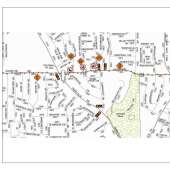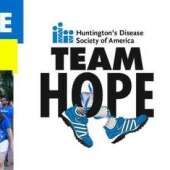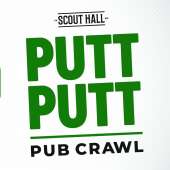Saturday, February 3, 2018
Part of the intake paperwork at any medical office includes questions about family history. As you check those boxes and list the causes of death of your close relatives, you might feel doomed by a legacy of heart disease. However, Debbie Leoni, MSA, RN and director of Cardiovascular Outreach Services for SoutheastHEALTH, would advise you to consider whether this is genetics or history. There is a difference. Think about what factors your family members had control over. Were they smokers? Did they rarely exercise? Did their diet include a lot of red meat? It may have not been their genetics that led to their heart disease, but their lifestyle. The good news is, you can make changes to write a new chapter about heart health in your family history.
Dawn Walston, APRN-BC, MSN with Cardiovascular Consultants, Southeast Hospital Cardiac Service Line, believes people can "absolutely take control" of their cardiac health by evaluating what they do on a daily basis when it comes to exercise and diet. Sometimes people are overwhelmed as they anticipate the changes they may have to make, but Walston encourages small steps. "You don't have to be a gym rat. Just get up and move! If you can just walk beyond what you do at work for 15 minutes, three to five times a week, that will make a difference for your heart. You don't have to cut out all red meat, just reduce it. There are no evil foods. You can still have a treat once a week." The only thing that is "all or nothing" is smoking. Even one cigarette a day increases your risk of a heart attack.
Leoni notes that our bodies are amazingly adaptable: "they can adapt to damage, but they can also adapt to healing." For example, 20 minutes after a person stops smoking, his or her pulse and blood pressure begin to lower. Someone who smokes a pack a day is twice as likely to have a heart attack as a non-smoker, but if you go a whole day without a cigarette, you just lowered your chance of having one. After 15 years, the chances that you will develop heart disease are the same as a non-smoker.
Medicine does not compensate for poor habits. While both Walston and Leoni want to encourage compliance with taking medication as prescribed by your doctor, they warn that "you can't take extra cholesterol medicine so you can eat big greasy meals." There is no magic fix that replaces regular exercise and a healthy diet. In fact, Walston and Leoni pointed out that taking diet pills or drinking energy drinks to try to speed up weight loss can hurt your heart's electrical system.
But, what if it IS your genetics that contribute to your heart disease? Leoni knows that can be the case. She described a friend who worked out faithfully but knew, because of his genetics, he would probably have a heart attack one day. And he did. But, he was back in the gym just a couple of weeks later. His healthy habits had strengthened his heart, and he was able to make a quick and complete recovery.
Family history is not doomed to repeat itself. You can boost your quality of life and thrive rather than survive by improving your cardiac health.
To learn more, visit www.sehealth.org/heartsmart.
































